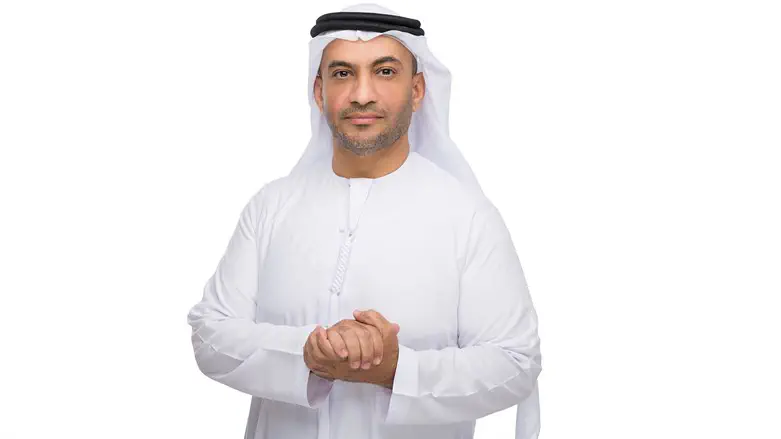
Since the establishment of relations between the UAE and Israel in mid-August 2020, serious efforts have been made to build a solid foundation for cooperation between the two countries in various fields. There is a common will to utilize the capabilities, opportunities and exchange of experiences in the interest of the two nations.
This fact is becoming more and more evident in the relations between the UAE and Israel over time. Recently, Prime Minister Naftali Bennett visited the UAE. He met HH Sheikh Mohammed bin Zayed Al Nahyan, the Crown Prince of Abu Dhabi and Deputy Supreme Commander of the Armed Forces. The official reception reflected the UAE’s desire to build strong and fruitful relations with Israel.
Israel occupies a priority place in the UAE’s plans to implement the Document of 50. One of the ten principles of the document states that in the coming period, full attention will be paid to building the best and most active economy in the world, and the UAE’s economic interests will be at the forefront of the highest national goals.
It is stated very clearly that the goal of the policy is to serve the economy. Developing stable and positive political, economic and popular relations with this environment (the geographic, popular and cultural environment of the state) is one of the most important foreign policy priorities of the state.
Certainly, Israel, with all its advantages in the technical and economic fields, remains an important number in the equations of strategic planners and policy makers. It is obvious that Israel is among the most developed states in several industrial and technological fields.
And there are promising opportunities for cooperation between the UAE and Israel’s development models, as they have great ambitions and aspirations for the future and a common interest in scientific research and the rapid transition to digitalization and the knowledge economy.
This is reflected in the description of the relationship between the two countries in the final statement at the end of the Israeli Prime Minister’s visit to the UAE as “firm” and “great partnership” - political terms and expressions carefully chosen on such occasions and in such circumstances.
These and many other factors create a fertile environment for all recent developments in UAE-Israel relations, as reflected in the numerous meetings between UAE and Israeli leaders and officials, which often end with the announcement of economic, trade and investment agreements. The most recent evidence of this is Mr. Bennett’s visit to the UAE.
The two sides agreed to establish a joint research and development fund and a joint economic council to bring together UAE and Israeli business and technology leaders to help them find solutions to challenges such as climate change, desertification, clean energy and future agriculture.
Cooperation and coordination is gaining momentum as several sectors are very similar in terms of ambition, development and reliance on scientific research, as well as integration into the global economy.
All of this provides a good foundation for collaboration and sharing expertise in areas such as pharmaceuticals, artificial intelligence, energy, water treatment, disease research, and smart agriculture. Add to this the Israeli high-tech sector, which accounts for more than 40% of Israel’s exports.
This paves the way for startups to take advantage of Israel and the world’s most attractive environment for these companies in the UAE, home to about one-third of startups in the Middle East and North Africa. The final statement at the conclusion of Bennett’s visit differs from the final statements issued after regular official visits and joint discussions between senior officials.
The official statement talks about a discussion agenda covering a range of issues in the economy, infrastructure, logistics and smart cities where significant progress has been made in the past year, including public-private cooperation, research and development, technology, food safety, climate, water, energy, environment, health and tourism.
It is a comprehensive agenda unique to the UAE-Israel relationship, reflecting the emerging peace between the two countries. There is a trend toward building a true peace model with Israel’s neighbors. Emirati-Israeli ambitions go beyond the traditional political debates and phrases that “decorate” statements after joint meetings, even if they are important.
The final declaration also calls for leveraging the strategic strengths and relationships of the two countries’ business communities, not only to promote bilateral trade and innovation, but also to combine technologies and business opportunities in the Middle Eastern, CIS, East Asian and African markets. Efforts are even being made to establish a comprehensive economic partnership agreement.
It is not unlikely that the two sides will succeed in building trust and deepening cooperation to the point where it can reach the level of a strategic partnership. The rapid development of bilateral relations indicates a common will for bilateral partnership, regardless of the conceptual framework or defining formula for this promising partnership.
One of the main characteristics of the UAE-Israel relationship is that it is based on genuine common interests that are closely linked to people. So the atmosphere of peace has quickly touched the public in both countries. The economy, trade, investment and tourism have benefited from it and form a solid foundation for the continuation and expansion of this relationship.
All this and more forms the basis for peace between the UAE and Israel and contributes to the regional spread of this culture.
This model of mutual benefit steers clear of political slogans and focuses on the realistic dimensions of peace, targeting the interests of societies to ensure this relationship pattern of stability, continuity and development.
Dr. Salem AlKetbi is a UAE political analyst and former Federal National Council candidate.
